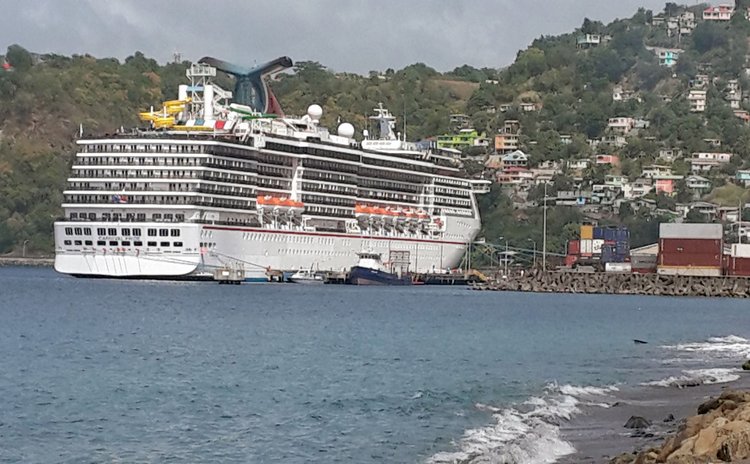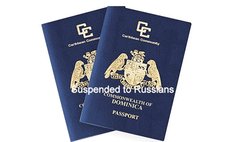The way ahead for Caribbean tourism

What might the shape of post COVID-19 economic recovery look like? This is a question that almost every government and business is now exploring.
No industry is more concerned about the answer than the tourism and hospitality sector as the emerging global consensus is that it will be among the last to see restrictions eased.
When global tourism finally returns, much will have changed, travel will be governed by factors outside the region's control, depend on visitor confidence, and will require a focus on the industry's broader economic and social role.
In a recent industry related paper, Jim Hepple of Tourism Analytics in Aruba suggests that despite the unprecedented nature of the present situation, many in the industry continue to focus on when the crisis will end. This he says is the wrong question, and that the real issue will be to manage appropriately in an environment in which the virus will affect all public thinking, everyday lives, visitor sentiment and the global economy for several years to come .
He believes this points to governments and the industry developing an informed view on how the pandemic will eventually be brought under control globally, knowing accurately the public health situation on the ground in every Caribbean country, recognising that international and national restrictions and regulations on international travel will remain in force for some time to come, and accepting that these and other factors, including a much hoped for vaccine, will govern the speed and way in which demand recovers.
In short, for several reasons the external aspects of tourism recovery will be far from straightforward.
Firstly, it is unlikely that every nation in the world can simultaneously and quickly bring the virus under control given the real possibility of subsequent waves of infection.
Secondly, concern about health issues will be compounded by a collapse in many travellers disposable income, the emerging recession and multiple constraints on travel.
Thirdly, airlines around the world are hemorrhaging cash, restructuring and facing bankruptcy, with many of the scheduled carriers that provide the Caribbean's airlift about to undergo contraction. The consequence will be a reduction in service frequencies and to enable social distancing be less available seats, implying airlines will increase fares and seek sustainable revenue guarantees from destinations.
Fourthly, if they can, cruise lines will have to restructure their passenger offering and port procedures. To return, they may seek tax holidays and other benefits at a time of diminished Caribbean government revenues.
And finally, industry operating costs will rise and revenues decline, making the selling price of every component of tourism substantially more expensive, ending the era of cheap long-haul vacations.
A further challenge will be how markets will reopen.
The view in Europe is that in order to balance public health needs against the importance of tourism as an economic driver, a phased approach is required. This will involve opening 'tourist corridors' between EU member states, initially for EU citizens only, with epidemiologists setting the criteria and defining the measures needed to ensure safety.
A similar dialogue is underway between New Zealand and Australia where the two countries envisage a focus first on encouraging domestic tourism, and then a 'bubble' approach that only allows controlled travel between the two and possibly with virus free Pacific neighbours.
This infers that viable post COVID-19 exit strategies for Caribbean tourism will require multi-disciplinary considerations, governments arbitrating between all involved parties, and political judgments on the balance between domestic public health considerations, phased economic recovery, and issues the region does not normally consider such as mass psychology and behavioural science.
Jamaica, Trinidad, Barbados and the Bahamas have all established task forces that cross some of these boundaries. In addition, the Caribbean Hotel and Tourism Association (CHTA) says its research shows that more than two thirds of national hotel and tourism associations are now working closely with their Governments on recovery strategies.
The regional economist and analyst, Marla Dukharan, sees several distinct recovery phases. The first, could see Caribbean citizens 'staycationing' in order to restart the industry. A second might involve high-end visitors who long-stay in private villas and timeshares, who would find periods of quarantine less onerous. The next would be to develop safe corridors within the region, gradually opening up intraregional travel to neighboring countries deemed safe. And the final phase would be when common regional protocols governing documentation and procedures for international visitors are established, allowing a gradual opening to countries outside the region.
Promisingly, Government and public health agencies are now advanced in developing regional health, safety and security protocols, while CHTA, the Caribbean Tourism Organisation and the Caribbean Public Health Agency (CARPAH) are develop guidelines for the tourism industry that build on their shared 'Tourism Health Information System'.
For these reasons Frank Comito, CHTA's CEO and Director General, is cautiously optimistic about the way ahead for Caribbean tourism.
While acknowledging the unprecedented impact the pandemic is having and will continue to have on the sector, he believes that recovery can be expedited if the industry and Caribbean Governments work together as they did for short periods following 9/11, and the twin hurricanes of 2017.
He stresses that the industry's future requires leaders working together on matters like health and safety protocols, and the training of workers to follow such procedures for their own safety and that of guests. It will also be, he says, in jointly taken actions to restore airlift, and collaborating on the public relations and marketing necessary to assure travellers that the Caribbean takes their health and safety seriously.
"The Caribbean is well positioned to not only accelerate its own recovery in a safe manner, but also to standout as one of the world's great escapes offering well-being to a travelling public which is longing for healing as we come out of this unfortunate nightmare", CHTA's CEO believes.
For a while yet, the outlook may be uncertain. However, if the pandemic has done anything it has made clear that tourism through its impact on tax revenues and employment is about much more than hotels and cruise lines. It has indicated that when present difficulties have passed, long-term collaboration involving all stakeholders is needed to reimagine and deliver a better integrated industry, that comes to be seen by all as a sustainable ,beneficial, ecologically sound, socio-economic development tool.
(David Jessop is a consultant to the Caribbean Council and can be contacted at david.jessop@caribbean-council.org Previous columns can be found at https://www.caribbean-council.org/research-analysis/)
May 1st, 2020



